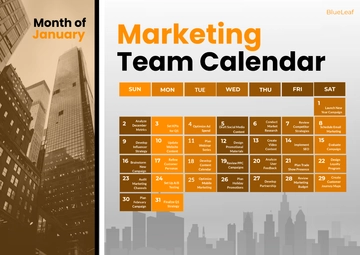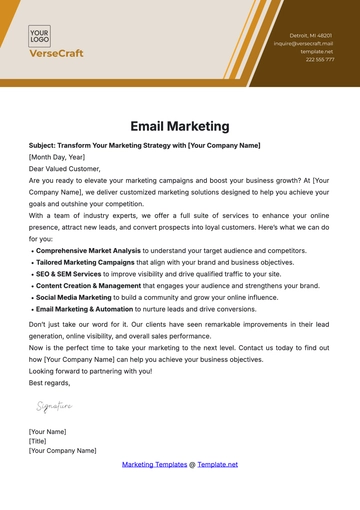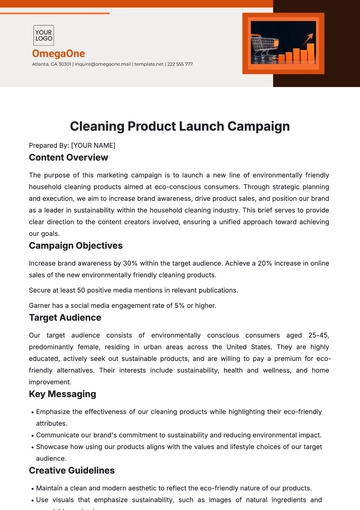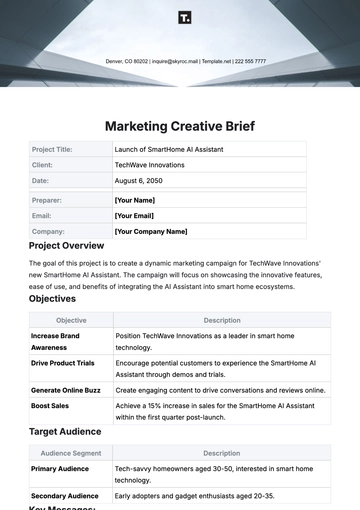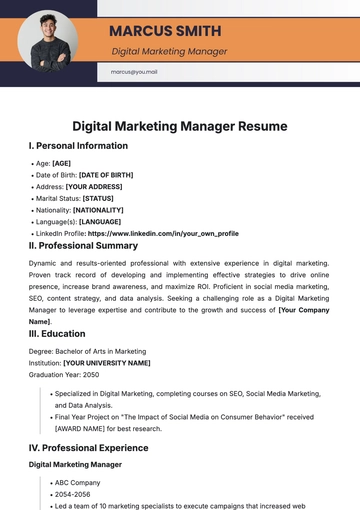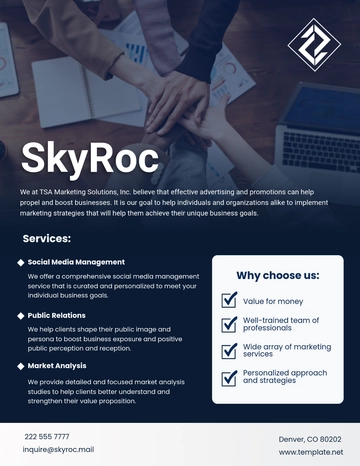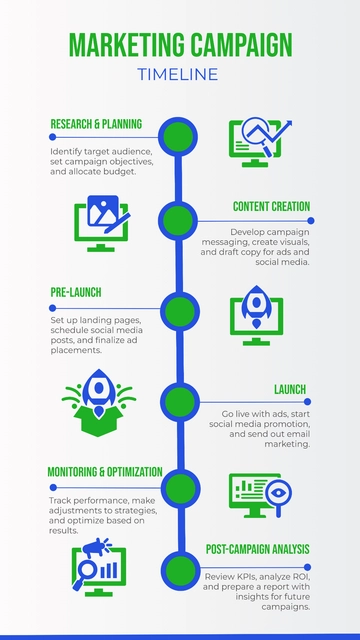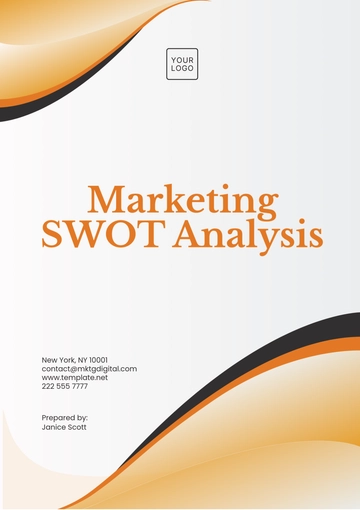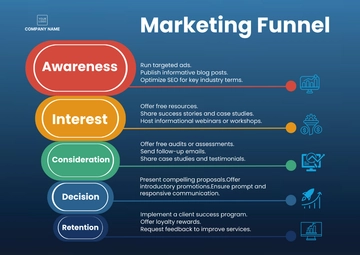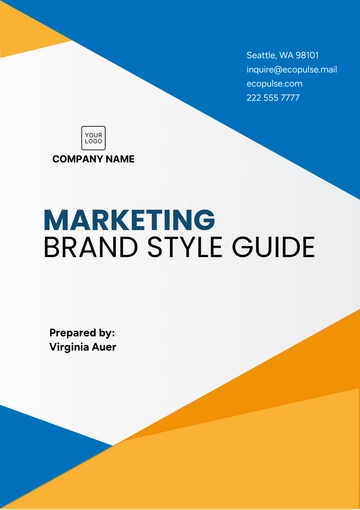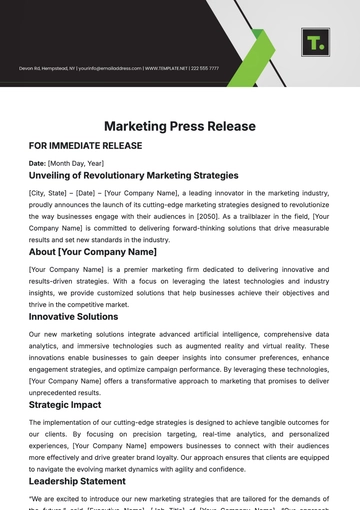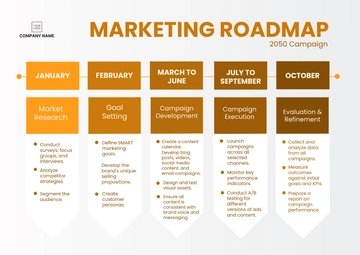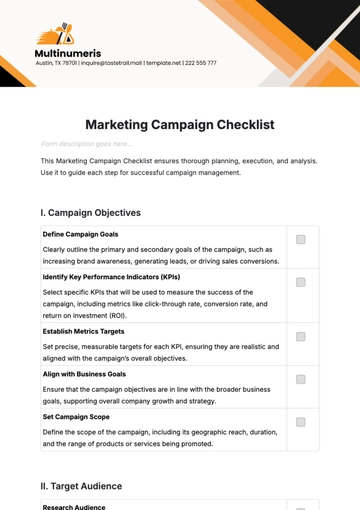Free Marketing Copyright Compliance Document
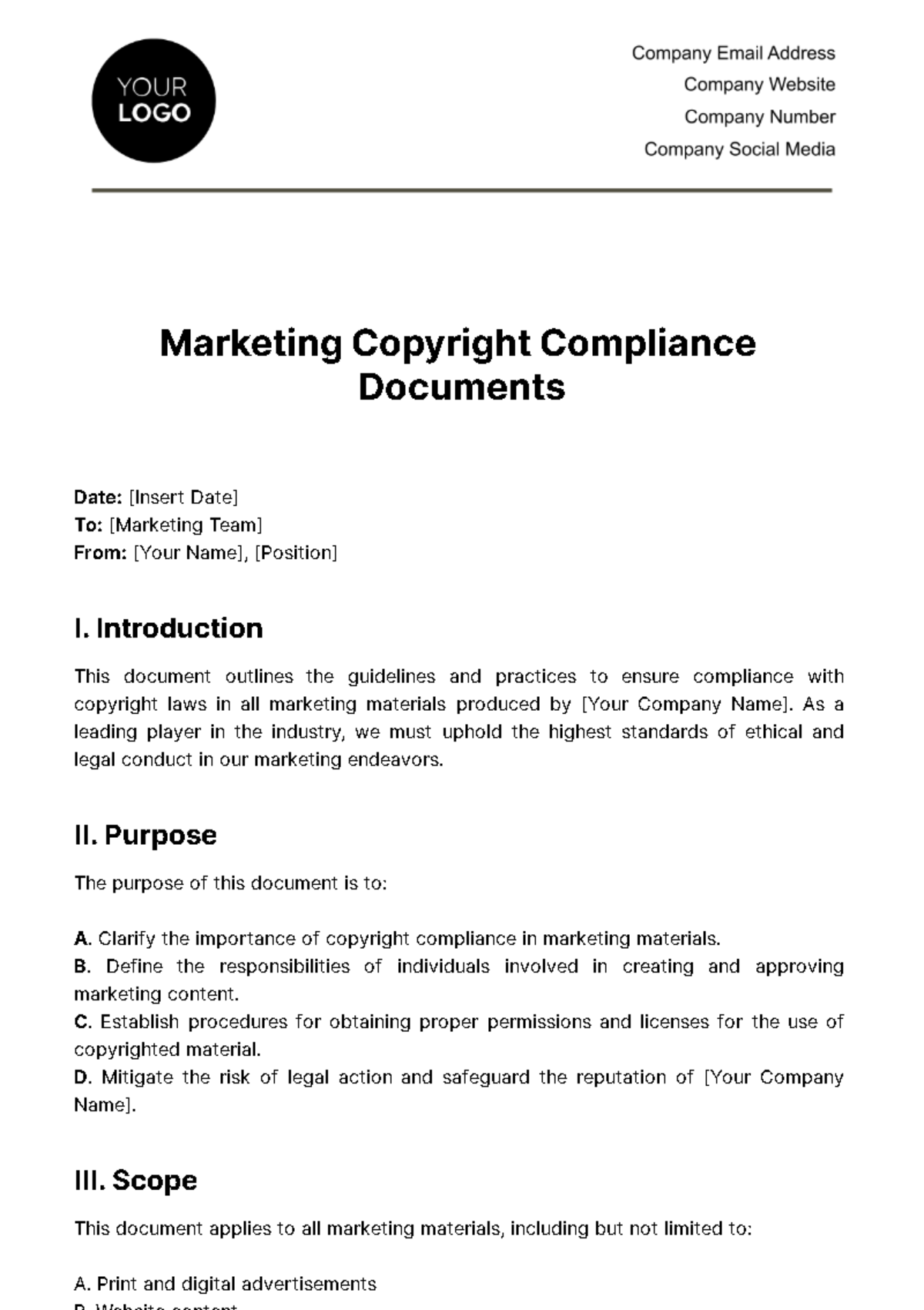
Date: [Insert Date]
To: [Marketing Team]
From: [Your Name], [Position]
I. Introduction
This document outlines the guidelines and practices to ensure compliance with copyright laws in all marketing materials produced by [Your Company Name]. As a leading player in the industry, we must uphold the highest standards of ethical and legal conduct in our marketing endeavors.
II. Purpose
The purpose of this document is to:
A. Clarify the importance of copyright compliance in marketing materials.
B. Define the responsibilities of individuals involved in creating and approving marketing content.
C. Establish procedures for obtaining proper permissions and licenses for the use of copyrighted material.
D. Mitigate the risk of legal action and safeguard the reputation of [Your Company Name].
III. Scope
This document applies to all marketing materials, including but not limited to:
A. Print and digital advertisements
B. Website content
C. Social media posts
D. Videos and multimedia content
E. Promotional materials
IV. Copyright Basics
A. Definition: Copyright is the exclusive legal right granted to an originator or an assignee to print, publish, perform, film, or record literary, artistic, or musical material.
B. Duration: Copyright protection lasts for the lifetime of the author plus a certain number of years, depending on the jurisdiction.
C. Fair Use: While fair use allows limited use of copyrighted material without permission, it is essential to understand the boundaries and seek legal advice if unsure.
V. Responsibilities
A. Marketing Team: Ensure that all content created adheres to copyright laws.
B. Legal Department: Provide guidance on copyright matters and review potentially contentious content.
C. Approving Authorities: Approve only those marketing materials that comply with copyright laws.
VI. Obtaining Permissions and Licenses
A. Internal Content: Ensure that content created internally is original or properly licensed for use.
B. External Content: Obtain written permission or licenses for the use of third-party content, including images, music, and text.
VII. Monitoring and Enforcement
A. Regular Audits: Conduct periodic audits to identify and rectify potential copyright infringements.
B. Enforcement: Take swift action to rectify and prevent further use of copyrighted material in violation of laws.
VIII. Training and Awareness
A. Training Programs: Conduct regular training programs to educate the marketing team on copyright laws and compliance.
B. Communication: Regularly communicate updates and reminders regarding copyright compliance.
IX. Consequences of Non-Compliance
A. Legal Consequences: Non-compliance may result in legal action against [Your Company Name].
B. Reputation Damage: Violations can damage our reputation and erode consumer trust.
X. Conclusion
By adhering to the guidelines outlined in this document, we contribute to the ethical and legal standing of [Your Company Name]. It is the responsibility of each team member to uphold these standards in all marketing endeavors.
This document is subject to periodic review and updates. Please contact the Legal Department for any clarifications or assistance regarding copyright compliance.
[Your Company Name]
Marketing Templates @ Template.net
- 100% Customizable, free editor
- Access 1 Million+ Templates, photo’s & graphics
- Download or share as a template
- Click and replace photos, graphics, text, backgrounds
- Resize, crop, AI write & more
- Access advanced editor
The Marketing Copyright Compliance Document is an essential resource for ensuring legal adherence in marketing materials. It provides a comprehensive framework for understanding and implementing copyright regulations. With user-friendly features, this document helps marketing teams navigate copyright complexities, minimize legal risks, and safeguard the integrity of marketing content and campaigns.
You may also like
- Marketing Google Slide
- Marketing Letter
- Marketing Quotation
- Marketing Report
- Marketing Strategic Plan
- Marketing Plan
- Marketing Proposal
- Marketing Flyer
- Marketing Presentation
- Real Estate Marketing Plan
- Marketing Contract
- Marketing Agreement
- Marketing Resume
- Marketing Checklist
- Marketing Brochure
- Marketing Banner
- Marketing Schedule
- Marketing Vector
- Marketing Logo
- Marketing Chart
- Marketing Campaign Plan
- Marketing Budget
- Marketing Postcard
- Marketing Poster
- Marketing Facebook Post
- Marketing Instagram Post
- Marketing Newsletter
- Marketing Infographic

